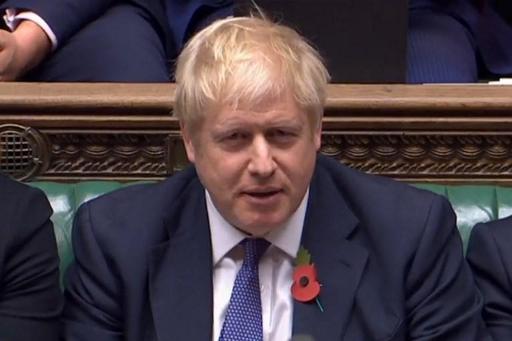The two most notable political developments in Europe during the summer of 2019 have been Ursula Von Der Leyen becoming the head of the EU commission, and Boris Johnson becoming the Prime Minister of the United Kingdom.
Both have contributed to a piece of political theatre so engrossing that millions across the continent watch ‘live’ updates of literal beaurocrats hashing out a unread ‘withdrawal agreement’ that is looking more and more like a general blueprint for leaving the EU.
While pundits and interest groups postured in the mediasphere about an economic apocaplypse, a Norwegian style deal, and nightmarish visions of gargantuan traffic jams, a deal had been carved out that took cursory intermediate steps in addressing issues that have been retrospectively prescribed unto the English Brexit voter monolith (around 17.4 million people or 26% of the UKs population), and lays a foundation for further talks to be conducted over the coming years.
Aside from the one sentence proffered in the referendum (“Should the United Kingdom remain a member of the European Union or leave the European Union?“) English voters were in no way consulted about their intentions, reasoning or understanding of the issue.
But from this one sentence Theresa May’s government was able to deduce what first steps should be taken in setting up a regulatory framework that would work towards decoupling the EU and UK’s shared governance mechanisms.
As UK politics turned into mom and dad fighting loudly on the front lawn at 2am, Europe was the pursed lipped goodwife watching in delight and disgust from across the street. European leaders showed solidarity, fast tracked extensions, and liberal politicians representing a liberal project on both sides of the channel engaged in a piece of theatre that has managed to keep the public’s attention in a time when our collective ADHD churns through major scandal in weeks.
The result has been a piece of horoscope politics the likes of which the west hasn’t seen in a decade. Brexit has come to mean everything to everyone! Some Europeans see it as an opportunity for greater European integration, some Brits see it as an opportunity to realign the UK with the world’s shifting power centers.
It is the dark abyss and the light and the end of the tunnel to one and all, a weak anti-libidinal edging exercise that awaits closure in whatever form it may come. While the media encouraged a collectively transfixed public to keep staring into the Brexit birdboxian light two coups occurred that set Europe on an inexplicable path.
On the one hand, the heads of state of the Visegrad group showed once again that national politics trumps European politics, and that ideologically coherent transnational factions is very much a fantasy, by torpedoing spitzenkandidat Frans Timmermans (Center Left). On the other hand, Western European heads of state responded by lining up Macron and Merkel Allies for all the major posts in the Union, perhaps Macron more than Merkel.
During a parliamentary debate the day after Von Der Leyen’s proposed candidature Spanish MEP Esteban Gonzales Pons fiercely criticized the move saying “I cannot support how things were done at the summit and the lack of respect shown to others.”, a comment all the more striking due to the fact that they are both part of the same EU party, the EPP. Despite the theatrics Pons voted to confirm Von Der Leyen.
The coup in the EU was curious to say the least. Any notion of democracy was cast away, and Europe doubled down on what is proving to be a deeply ideological machine. Meanwhile in the UK Johnson, who had walked away from May’s cabinet in disgust, was ‘elected’ prime minister by his party who still held a slight majority.
He moved quickly to purge the cabinet of any potential dissenting voices, and began a 3 month long Mexican stand off with an EU that couldn’t quite get its story straight with a Brexit deadline looming on October 31st. After casting out members of his own party, suspending the UK parliament and going on a tour of Europe, negotiations finally started but not before a Jeremy Corbyn led opposition passed the Benn amendment obliging Johnson to request an extension should no deal be agreed upon before the Halloween deadline.
As of this writing a deal has been agreed upon. Around 15 pages of text from the previously negotiated withdrawal agreement have been amended. All 15 pages relating strictly to the Irish backstop, and the scrapping of some of the hard-coded dates May had put in her deal. That Johnson walked away from a nearly identical deal because of its lack of Brexit ambition is ironic. The fact of the matter is that the deal is fundamentally unchanged.
What has changed is the political circumstances within which it is being signed. Johnson had met with 4 key EU figures in the run up to the “deal” (Macron, Varadkar, Juncker and Merkel). Three of them are saying on the eve of the common’s vote that they do not back an extension. All four have agreed to the new deal.
Boris Johnson has besieged his own parliament, a parliament with an opposition emboldened by avowed leftist Jeremy Corbyn whose political persona is the friendly but stern old man who buys books for the neighbourhood library. In Johnson’s war against his own parliament he has successfully enlisted the help of the Queen, the president of France, the head of the EU, and the Irish Taoiseach.
A political furore has been whipped up, the theatre is gripped, and the UK parliament has but one thing left to do and that is to pull the figurative trigger on Chekov’s gun. What sits under all the politics is the cold harsh reality of negotiating trade agreements.
As an example, NAFTA integrated 3 disparate economies, negotiations lasted around 8 years (1986 – 1994), and the final implementation came in 2008, 14 years after its ratification, and only 10 years before it was renegotiated by ertswhile television personality cum President of the US Donald Trump. That any deal could even begin to address the infinite and unknown economic, social and political entanglements is pure fantasy.
To put it more grotesquely: unelected Western European technocrats are negotiating a roadmap for the dismantling of the EU with a megalomaniacal political savant who will do anything to remain in power. However the UK house of Commons votes on Saturday 19 October, the one thing that is clear is that there isn’t an actor in this entire spectacle that is currently capable or intent on addressing the very real concerns of the people of rapidly changing Europe.
Alexandre D'hoore


